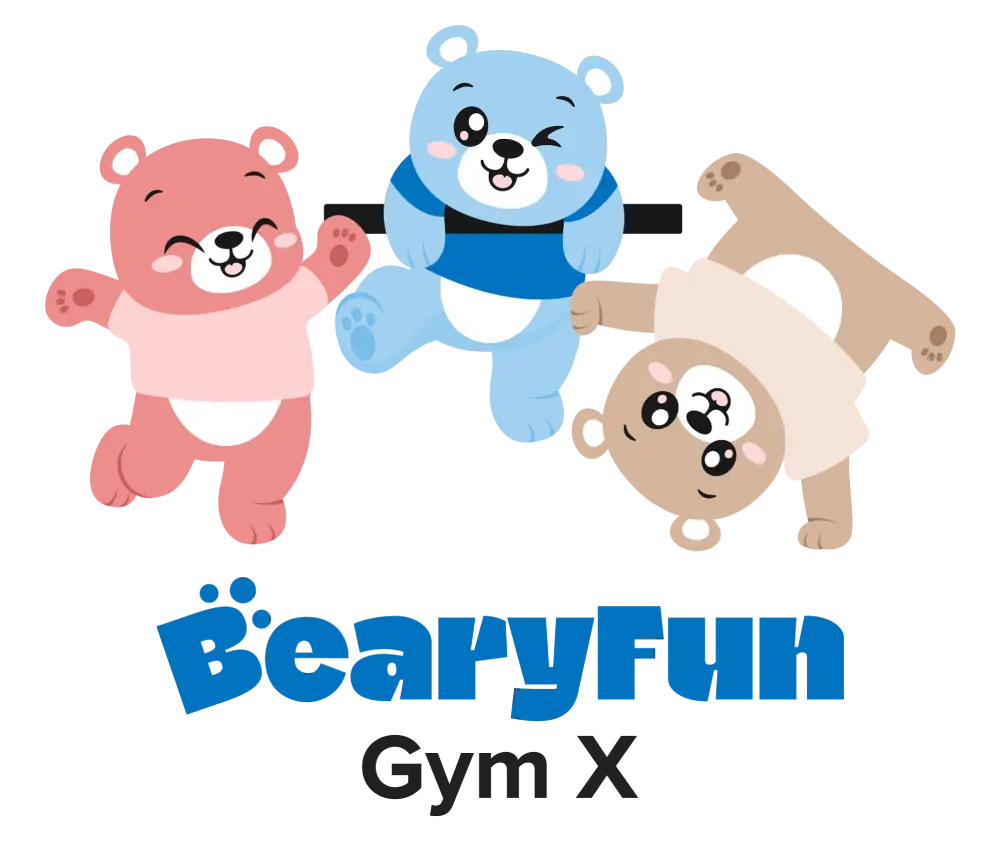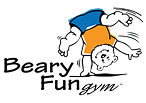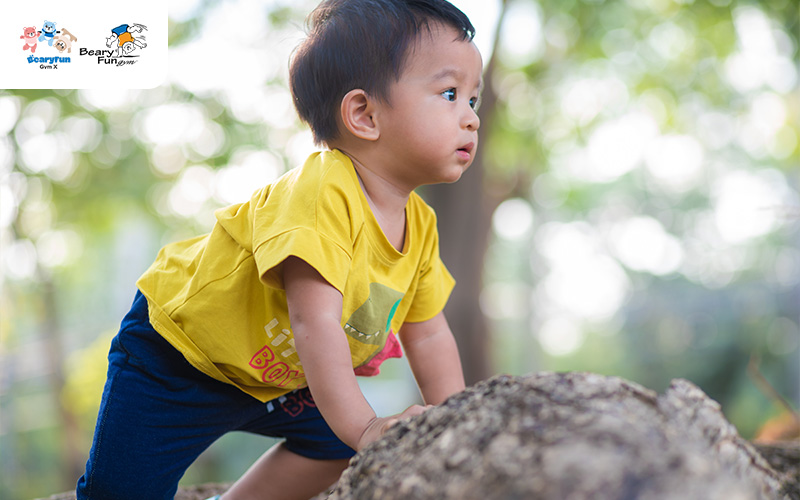Key Takeaways
- Physical development in early childhood supports learning, behaviour, and confidence, not just physical health.
- Core strength and motor control help children get school-ready and stay focused in the classroom.
- Fun, engaging activities like preschool gymnastics encourage growth in a safe, structured setting.
Physical development in early childhood begins long before children even start walking. The first time a baby lifts their head, reaches for a toy, or rolls over, their body is already learning how to control movement. These early actions may seem simple, but they play a critical role in preparing children for more complex physical activities such as crawling, climbing, running, and eventually participating in sports or structured movement programmes.
In Singapore, where many young children are enrolled in preschools and enrichment centres, it is just as important to ensure that they have many opportunities to develop physical skills. With the rising focus on holistic development, parents are encouraged to look beyond academics and recognise how movement contributes to emotional, social, and cognitive growth. Here are a few reasons on why physical development in early childhood matters.
Why Physical Development Matters: 5 Core Benefits
1. Strong Bodies Start with Early Physical Development
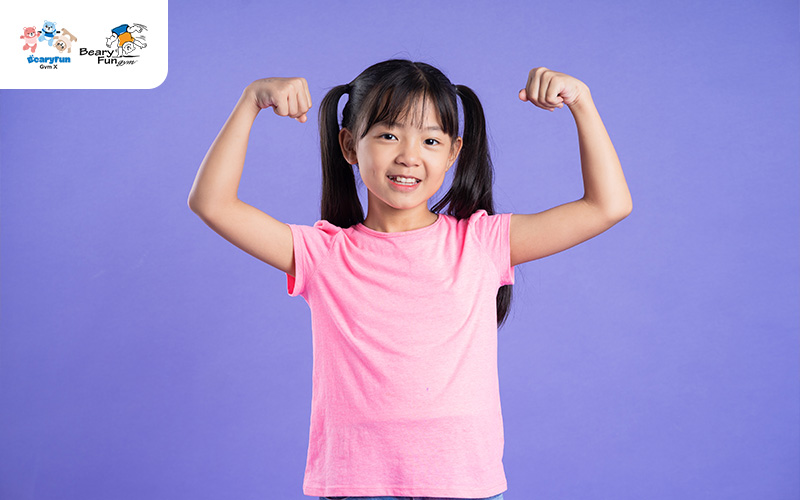
In the first few years of life, children’s muscles, bones, and coordination systems develop rapidly. Encouraging regular physical activity strengthens these systems and helps children grow into healthy, active individuals. Moving, climbing, balancing, and jumping support posture, flexibility, and cardiovascular health. In warm climates like Singapore, it is also a good way to help young children burn energy safely indoors. Habits formed through movement-based play or toddler gymnastics improve physical development in early childhood, and are more likely to carry over into an active lifestyle later in life.
2. Physical Development Builds School Readiness
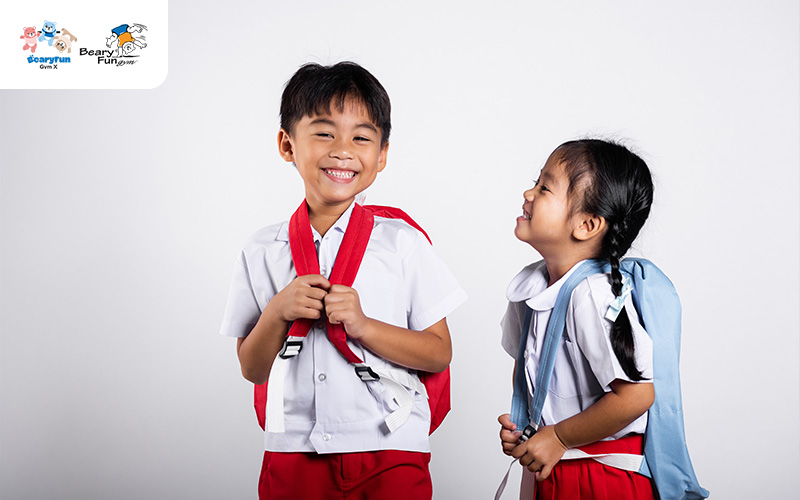
Many skills needed for primary school are physical in nature. Sitting upright in a chair, holding a pencil, putting on shoes, or staying focused during lessons all require a certain level of motor control. These small, seemingly routine tasks are made possible through well-developed coordination and core strength. A child who struggles with balance or fine motor skills may also find it harder to keep up in class. In this way, physical development in early childhood directly supports school readiness, allowing children to engage more confidently and independently in a structured learning environment.
3. Movement Encourages Discipline and Emotional Control
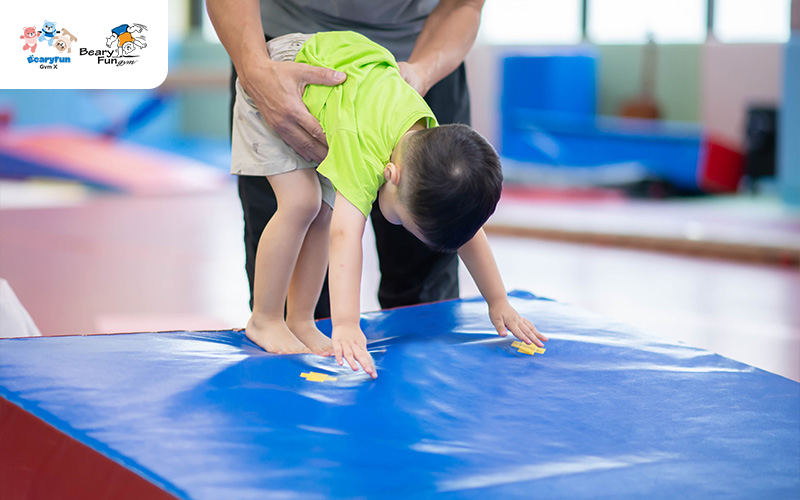
Movement-based activities are not just good for the body; they also support behaviour and discipline. In structured settings such as gymnastics for toddlers, children are taught how to take turns, follow rules, and stay on task. They begin to understand that instructions must be followed for safety and group cooperation. These small but meaningful experiences help them build patience, attention span, and emotional control—traits that benefit them both in and out of the classroom.
4. Movement Boosts Sensory and Spatial Awareness
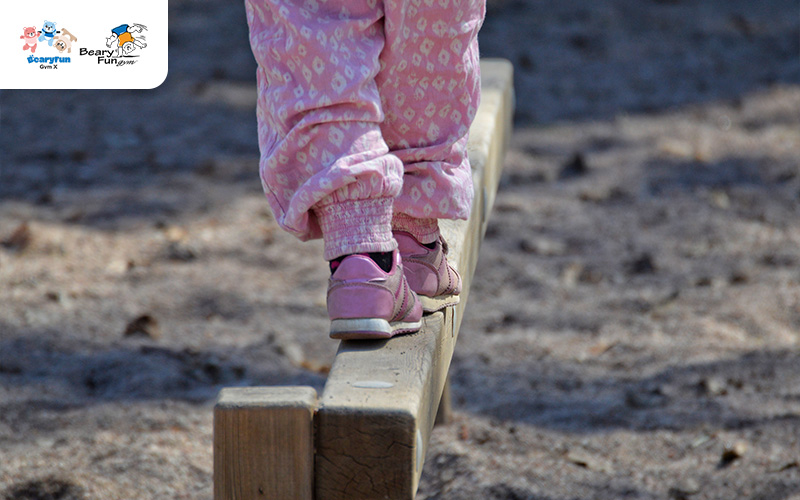
For children to move effectively, their brains must process information from multiple senses at once. When a child balances on a beam or hangs from monkey bars, they are practising sensory integration, which is the brain’s ability to interpret signals from the body and respond with the right movement. This is key to developing spatial awareness and smooth coordination. Without good sensory integration, children may appear clumsy, struggle to focus, or become easily overwhelmed by sensory input.
5. Motor Challenges Foster Resilience and Growth Mindset
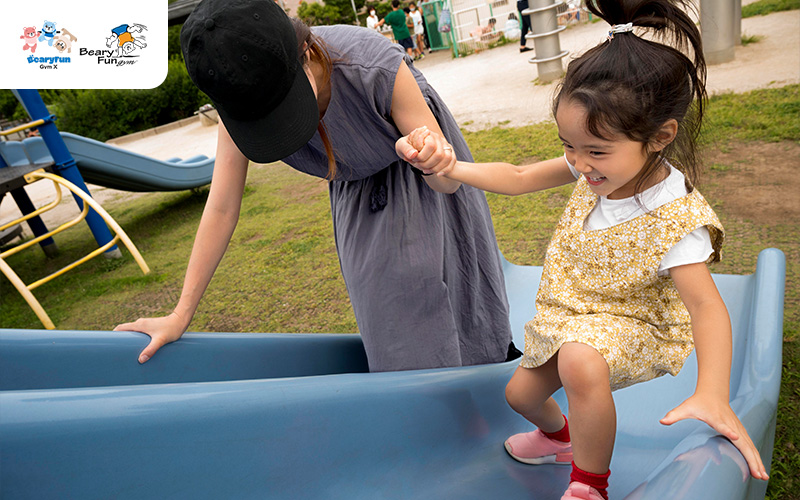
It is natural for young children to fall, stumble, or miss the mark when learning something new. However, each attempt helps them understand their own bodies better and builds resilience. Whether it is learning a forward roll in toddler gymnastics or balancing for the first time, children begin to see that improvement comes with effort. These small wins help shape a growth mindset, a belief that abilities can improve through practice and persistence. This mindset is valuable not only in physical challenges but in academics and life as a whole.
Physical Development Milestones by Age
Understanding physical development milestones helps parents track progress and support children’s needs. While every child grows at their own pace, here are the typical early childhood motor milestones by age group:
- 0–2 years
– Rolls over, sits without support, crawls
– Begins walking independently
– Holds objects, begins self-feeding
- 2–4 years
– Runs, jumps with both feet, climbs furniture
– Uses utensils, stacks blocks, threads large beads
– Kicks a ball, rides a tricycle
- 4–6 years
– Hops on one foot, skips, balances on a line
-Cuts shapes with scissors, starts writing letters
– Catches and throws a small ball
- 6+ years
– Displays improved agility and coordination
– Ties shoelaces, masters more complex motor skills
– Begins participating in structured sports or gymnastics programmes
Milestones offer a helpful framework, but every child develops differently. The key is to create opportunities for movement that match their current stage.
7 Activities That Boost Physical Development in Preschoolers
Preschoolers learn best through movement and play. Here are some fun activities for physical development that also double as engaging preschool motor skill games:
– Obstacle Course
Set up tunnels, cones, soft mats, and hoops to encourage crawling, jumping, and climbing. This helps develop coordination, balance, and core strength.
– Animal Walks
Encourage children to move like animals—bear crawls, frog jumps, crab walks—each motion builds muscle tone, rhythm, and body awareness.
– Yoga for Kids
Gentle poses improve flexibility, breathing, and focus. It also teaches mindfulness and calm in a playful way.
– Ball Toss Games
Throwing, catching, and kicking balls support hand-eye coordination and gross motor skills like timing and spatial judgment.
– Dance and Movement Games
Freeze dance, follow-the-leader, and musical movement games improve rhythm, listening, and sequencing, all while keeping energy levels high.
– Sensory Play
Activities like walking on textured mats or using balance boards stimulate sensory input and motor planning, important for both play and learning.
– Fine Motor Stations
Beads, blocks, stacking cups, and play dough help children strengthen finger control, grip, and dexterity for tasks like writing or self-care.
For more ideas on how motor skills progress through each stage of development, check out our guide to motor skills development.
The Role of Structured Programmes like Preschool Gymnastics
While playtime and daily activities are essential, structured environments provide targeted support for physical growth. A preschool motor development programme like BearyFun Gym is specially designed to guide children through safe and age-appropriate challenges.
Our classes offer:
– Trained Coaches
Experienced in both movement and early childhood development, our coaches understand how to motivate, encourage, and teach with care.
– Safe, Child-Sized Equipment
Every setup is tailored to small hands and developing bodies, allowing children to explore without fear.
– Progressive Learning Pathways
Our programmes are designed to grow with your child, building on skills week by week to support all-round growth.
These structured physical development activities help children develop not only strength and coordination but also confidence, social skills, and emotional resilience. At BearyFun Gym, we aim to nurture every child’s full potential through movement that’s fun, challenging, and full of discovery.
Physical development in early childhood is about far more than learning to walk or run. It is a critical part of a child’s overall growth, influencing how they learn, communicate, and relate to others. Strong physical foundations help children become more confident, more focused, and more ready for school and life.
At BearyFun Gym, we focus on creating safe, nurturing environments that support growth in young children through movement. Our gymnastics classes for toddlers are designed to develop strength, balance, and coordination in fun and engaging ways. Led by experienced coaches, our programmes also support emotional resilience, social skills, and a love for movement.
To learn more about our programmes and facilities, please contact us today.
